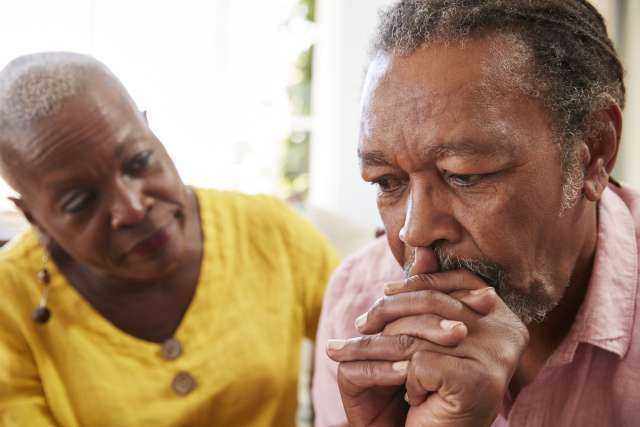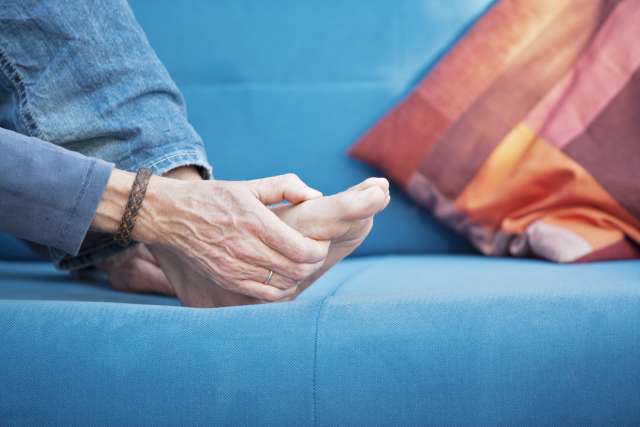Dear Doctors: My husband had a stroke at work last spring. His colleagues recognized the symptoms and called 911 right away. He spent time in the hospital and is doing physical therapy. He's a lot better physically -- but lately, he's depressed. Why does that happen? My kids and I are so worried about him.
Dear Reader: A stroke occurs when the normal flow of blood in the brain is interrupted. When this is due to a blockage, it is called an ischemic stroke. A stroke can also result from bleeding in the brain; this is a hemorrhagic stroke.
Any type of stroke is a medical emergency. Even a brief disruption of blood flow to the brain can starve the tissues of oxygen and nutrients. This can cause brain damage, long-term physical and mental disability or even death. The quick response by your husband's colleagues improved his chances at a successful recovery.
When someone has had a stroke, the initial focus is on any adverse physical effects. These include numbness, weakness or paralysis on one side of the face or body, difficulties in speaking and in understanding speech, impaired vision and severe headache. The fact that your husband is recovering physically is very good news. However, he is now experiencing depression as an aftereffect of stroke, which, while common, is not as widely talked about as other effects.
It is estimated that symptoms of depression arise in at least one-third of stroke survivors. This not only lowers the person's quality of life, but it can also interfere with both the speed and degree of their recovery. Further, as your letter makes clear, when one member of a family struggles with depression, it can affect everyone.
A life-threatening medical event like a stroke is frightening, and it can be profoundly isolating. The treatment and recovery often leave the individual feeling different from those around them. This can lead to depression.
Recent research also suggests that physical changes caused by post-stroke inflammation may also play a role. Studies have found that stroke survivors who become depressed have higher levels of certain blood biomarkers associated with inflammation than do survivors without depression. These biomarkers have previously been linked to changes in brain chemistry that may play a role in depression.
Whatever the cause, it is important to seek treatment for post-stroke depression. Survivors who get early diagnosis and treatment have less cognitive impairment, improved physical outcomes, lower mortality rates and lower rates of suicidal thoughts than those whose depression is not addressed.
Treatment often includes the use of antidepressants, along with seeing a therapist. Antidepressants can ease the symptoms that make it difficult to engage with daily life. Talk therapy offers a safe forum to explore feelings of fear, anger, guilt and anxiety, which are often triggered after a life-threatening event.
If your husband prefers, a support group is a good alternative. Getting to know other stroke survivors, hearing their stories and struggles and sharing his own can diminish the sense of isolation.
(Send your questions to [email protected], or write: Ask the Doctors, c/o UCLA Health Sciences Media Relations, 10960 Wilshire Blvd., Suite 1955, Los Angeles, CA, 90024. Owing to the volume of mail, personal replies cannot be provided.)





